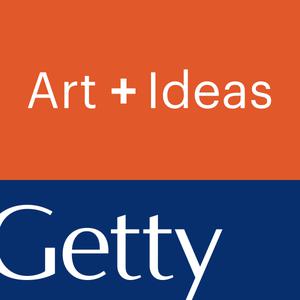
Getty Art + Ideas
Getty
Join Jim Cuno, president of the J. Paul Getty Trust, as he talks with artists, writers, curators, and scholars about their work. Listen in as he engages these important thinkers in reflective and critical conversations about architecture, archaeology, art history, and museum exhibitions.
- 34 minutes 22 secondsRecording Artists: Robert Rauschenberg
Check out the newest season of Recording Artists, hosted by actor, artist, and futurist Ahmed Best. Explore the Getty archives and learn about the innovative art-science group Experiments in Art and Technology (E.A.T.) in season three, out now.
This first episode of the season features Robert Rauschenberg, weaving archival recordings of the artist with new interviews by MoMA chief curator at large and publisher Michelle Kuo and cognitive-studies scientist Xiaodong Lin-Siegler.
Learn more about the episode and subscribe to the series.
The Getty Patron Program is a proud sponsor of this podcast.
Additional music from “Variations VII” written by John Cage courtesy of Henmar Press, Inc.
4 November 2024, 10:11 pm - Recording Artists: Frida Kahlo
Enjoy this episode from season 2 of Getty's other podcast, Recording Artists. This series features materials from Getty's archives. This season, titled Intimate Addresses, highlights artists' letters.
To hear the rest of the season, subscribe to Recording Artists on your favorite podcast app or on our website here.
In 1944, Frida Kahlo is at a crossroads, both in terms of her health and her career. In April of that year, with World War II dragging on, she writes to her gallerist—and former lover—Julien Levy. In this tender and personal letter, she moves from the logistical challenges of sending art across national borders during wartime, to describing her painful new steel corsets, to asking after her many friends in New York, where Levy lives. Unpacking this letter and exploring Kahlo’s words written in her own hand provides a new understanding of an artist who has become larger than life in the years since her death at age 47.
In this episode of Recording Artists: Intimate Addresses, host Tess Taylor highlights Kahlo’s vibrant personality, tracing how her artistic career developed alongside her long-running health struggles and her now-iconic style and persona. Anna Deavere Smith voices the letter. Photographer and poet Rachel Eliza Griffiths, whose work often addresses pain and the body, provides her artist’s insight while historian Circe Henestrosa, who co-curated the Kahlo exhibition Making Herself Up at the Victoria and Albert Museum in 2018, shares charming anecdotes and important details of Kahlo’s life.
For transcripts, images, and additional resources visit our website.
26 September 2023, 8:15 am - Trailer—Recording Artists Season 2
In Season 2 of Getty's podcast series Recording Artists, titled Intimate Addresses, each episode unpacks one letter from one artist, including Marcel Duchamp, Frida Kahlo, M. C. Richards, Benjamin Patterson, Nam June Paik, and Meret Oppenheim. Anna Deavere Smith reads the letters while our host, poet Tess Taylor, speaks with modern-day creators and historians to explore the artists’ lives. The season launches September 26, 2023. Subscribe on your favorite podcast app or learn more on our website here.
12 September 2023, 9:37 am - 39 minutes 48 secondsArt and Poetry: Recording Everyday Life
“I think you can see that from my work, that I try to put everything I know in there and everything I don’t know. I’m looking for stuff that I don’t know, in that pursuit of, like, a daily practice.”
Terrance Hayes is fascinated by creating records of daily life. With a background in visual art and poetry, he has a nuanced understanding of what constitutes writing and reading across mediums. His work as a teacher also touches everything he does.
In this episode, hosted by Getty Research Institute associate curator Dr. LeRonn Brooks, Hayes discusses his creative practice, as well as the possibilities of radical imagination in recording one’s life.
Hayes is professor of creative writing at New York University. He is the author of the National Book Award finalist How to Be Drawn (Penguin, 2015) and Lighthead (2010), which won the 2010 National Book Award and was a finalist for the National Book Critics Circle Award. His numerous honors include a Whiting Writers Award and fellowships from the National Endowment for the Arts, United States Artists, the Guggenheim, and the MacArthur Foundation.
For images, transcripts, and more, visit https://blogs.getty.edu/iris/art-and-poetry-recording-everyday-life/ or http://www.getty.edu/podcasts
To learn more about Terrance Hayes, visit https://terrancehayes.com/
28 June 2023, 8:55 am - 42 minutes 2 secondsArt and Poetry: How to Witness the World
“What I tell my students—and most of them are writers—is that the only way for them to get to a place where they’re making what they should be making, writing what they should be writing, is to work from a place of courage.”
Claudia Rankine is a skilled poet, playwright, essayist, and professor. She explores, across genres, how the act of witnessing is necessary in maintaining the social contract. During this period of immense global change, witnessing as an act is a powerful act for artists, who can incisively question the moral trajectory of a nation.
In this episode, hosted by Getty Research Institute associate curator Dr. LeRonn Brooks, Rankine shares her thoughts on the role art and artists play in determining the course of history, her approach to teaching a new generation of artists, and the importance of introspection and intention in shaping our collective future.
Rankine is professor of creative writing at New York University. She is the author of three plays and six collections, including Citizen: An American Lyric and Don’t Let Me Be Lonely; she has also edited several anthologies, including The Racial Imaginary: Writers on Race in the Life of the Mind. In 2016, she co-founded The Racial Imaginary Institute (TRII). Her most recent book is Just Us: An American Conversation (Graywolf, 2020). She is a recipient of numerous awards and honors, including MacArthur, Lannan Foundation, and Guggenheim fellowships.
For images, transcripts, and more, visit https://blogs.getty.edu/iris/art-and-poetry-how-to-witness-the-world/ or http://www.getty.edu/podcasts
To learn more about Claudia Rankine, visit https://as.nyu.edu/faculty/claudia-rankine.html
28 June 2023, 8:30 am - 38 minutes 25 secondsArt and Poetry: Connecting Stories at the National Museum of African American History and Culture
“African American history is American history. You can’t tell it without talking about the contributions, the questions, the very heart of the creativity of African American culture.”
As a poet and director of the Smithsonian’s National Museum of African American History and Culture , Kevin Young thinks a lot about how African American culture is a crucial part of American culture. From blues music to poetry, from cakewalk dances to Black Twitter, Young draws connections across time as he discusses a wide range of art forms and cultural phenomena.
In this episode, hosted by Getty Research Institute associate curator Dr. LeRonn Brooks, Young discusses his poetry and the visibility and influence of African American art across mediums and history.
Young is the Andrew W. Mellon Director of the Smithsonian’s National Museum of African American History and Culture and the poetry editor of The New Yorker. He has published fifteen books of poetry and prose and is the recipient of numerous awards and honors, including the Graywolf Press Nonfiction Prize and the PEN Open Book Award, and fellowships from the Guggenheim Foundation and MacDowell Colony. He was also finalist for the National Book Critics Circle Award for criticism.
For images, transcripts, and more, visit https://blogs.getty.edu/iris/art-and-poetry-connecting-stories-at-the-national-museum-of-african-american-history-and-culture/ or http://www.getty.edu/podcasts
To learn more about Kevin Young, visit https://kevinyoungpoetry.com/
28 June 2023, 8:00 am - 27 minutes 2 secondsCultural Heritage Under Attack: The United Nations and Uyghur China
“Culture isn’t just dead stones and statues; culture is life. Culture is, you know, all the ways in which we move and interact together as peoples.”
In 2005, the United Nations agreed to a new framework called Responsibility to Protect (R2P) aimed at preventing genocide and crimes against humanity. However, this norm neglected to protect cultural heritage explicitly, despite the fact that the destruction of cultural heritage, including intangible heritage such as traditions and religious practices, often goes hand in hand with ethnic cleansing. This dynamic is playing out today in Xinjiang China, home to the ethnic minority Uyghur people.
In this episode, former Getty President Jim Cuno speaks with Simon Adams, president and CEO of the Center for Victims of Torture, and Rachel Harris, expert on Uyghur culture and professor of ethnomusicology at SOAS, University of London, about the role of the UN in protecting cultural heritage in times of crisis and the current case of the Uyghur people in China. Adams and Harris are contributors to the recent publication Cultural Heritage and Mass Atrocities, edited by Jim Cuno and Thomas G. Weiss and available free of charge from Getty Publications.
For images, transcripts, and more, visit https://blogs.getty.edu/iris/cultural-heritage-under-attack-the-united-nations-and-uyghur-china/ or http://www.getty.edu/podcasts
To read Cultural Heritage and Mass Atrocities, visit https://www.getty.edu/publications/cultural-heritage-mass-atrocities/
15 February 2023, 9:00 am - 31 minutes 8 secondsCultural Heritage Under Attack: Monuments and War Zones
“Protecting cultural heritage, like protecting civilians directly, had strategic import.”
How does the presence of a cultural heritage site on the battlefield change wartime decision making? In 1944, as Allied generals postponed an attack on an Axis stronghold—located at the culturally important Catholic abbey Monte Cassino—they had to consider the potential for loss of life, the cultural significance of the abbey, the negative propaganda they would face for attacking a religious site, and the possible strategic alternatives to an all-out attack. Political scientists Ron E. Hassner and Scott D. Sagan make the case that the presence of cultural heritage sites is always an important consideration for troops in both offensive and defensive positions—even in cases where those sites are ultimately destroyed.
In this episode, hosted by former Getty President Jim Cuno, Hassner and Sagan discuss battles from WWII through the current war in Ukraine to explore how politicians and military officials think about cultural heritage sites during times of war.
Ron E. Hassner is Chancellor’s Professor of Political Science and Helen Diller Family Chair in Israel Studies at the University of California, Berkeley. Scott D. Sagan is the Caroline S. G. Munro Professor of Political Science and senior fellow and codirector at the Center for International Security and Cooperation and the Freeman Spogli Institute at Stanford University. Hassner and Sagan are contributors to the recent publication Cultural Heritage and Mass Atrocities, edited by Jim Cuno and Thomas G. Weiss and available free of charge from Getty Publications.
For images, transcripts, and more, visit https://blogs.getty.edu/iris/cultural-heritage-under-attack-monuments-and-war-zones/ or http://www.getty.edu/podcasts
To read Cultural Heritage and Mass Atrocities, visit https://www.getty.edu/publications/cultural-heritage-mass-atrocities/
1 February 2023, 9:51 am - 34 minutes 58 secondsCultural Heritage Under Attack: Who Defines Heritage?
“The society we now live in has been, in large measure, accomplished by destroying the cultural heritage of previous generations at various moments.”
Cultural heritage is made up of the monuments, works of art, and practices that a society uses to define and understand itself and its history. The question of exactly which monuments or practices should be considered cultural heritage evolves as the society changes how it views itself—and, perhaps more importantly, how it views its future. This slippery definition of heritage is at the core of many of the challenges preservationists and heritage professionals face today.
In this episode, hosted by former Getty President Jim Cuno, Neil Macgregor and Kavita Singh discuss who gets to define cultural heritage and why that matters, using examples pulled from the French Revolution to contemporary Sri Lanka.
Neil Macgregor is the former director of the National Gallery, London, the British Museum, and the Humboldt Forum in Berlin. Kavita Singh is professor at the School of Arts and Aesthetics, Jawaharlal Nehru University, New Delhi. Macgregor and Singh are contributors to the recent publication Cultural Heritage and Mass Atrocities, edited by Jim Cuno and Thomas G. Weiss and available free of charge from Getty Publications.
For images, transcripts, and more, visit https://blogs.getty.edu/iris/cultural-heritage-under-attack-who-defines-heritage/ or http://www.getty.edu/podcasts
To read Cultural Heritage and Mass Atrocities, visit https://www.getty.edu/publications/cultural-heritage-mass-atrocities/
18 January 2023, 9:47 am - 35 minutes 16 secondsMindfulness in the Museum: Art for Mental Wellbeing
"I know we call them art museums, but I think they’re really wellbeing centers, because people are coming in—maybe they don’t know that’s what’s about to happen—but you are helping them expand who they are, and give them these three feelings of awe, gratitude, and compassion, that are the keys to living a healthy and meaningful life."
What exactly is the human mind? This question has occupied Dr. Dan Siegel since he entered the field of psychiatry in the 1980s. Drawing from his experiences on a suicide prevention hotline, his time pursuing dance, and his wide-ranging studies on subjects from complex systems to indigenous traditions, Siegel has worked to define and better understand the human mind. His approach is both neurobiological and takes into account relationships among people and between people and nature. Among other tools that support mental health, Siegel emphasizes the role of art in promoting mental and emotional wellbeing.
In this episode, Siegel speaks with Getty Museum educator Lilit Sadoyan about his definition of the mind, the importance of art, and how we might think about our relationships to each other and our environment. Siegel is a best-selling author, a clinical professor of psychiatry at the UCLA School of Medicine, and the founding co-director of the Mindful Awareness Research Center at UCLA.
For images, transcripts, and more, visit https://blogs.getty.edu/iris/mindfulness-in-the-museum-art-for-mental-wellbeing/ or http://www.getty.edu/podcasts
To learn more about Dan Siegel, visit https://drdansiegel.com/
To learn more about the Mindful Awareness Research Center, visit https://www.uclahealth.org/programs/marc
21 December 2022, 9:39 am - 35 minutes 23 secondsMindfulness in the Museum: Healing through Mindfulness
“The museums give us these just incredible opportunities to have some kind of an encounter with different ways of seeing the world, shining a light on some aspect of our history or aspect of our humanity that opens up a new doorway for me to see things differently.”
While mindfulness is often thought of as a solitary practice, law professor and meditation teacher Rhonda Magee believes in its power to support collective healing. It can bridge the divide between subjects like law or physics, which are often thought of as cold and dispassionate, and our personal experiences, stories, and feelings by allowing us to become more in touch with and aware of the human element of academic disciplines. Approaching museum spaces and artworks with a similar mindset, Magee sees opportunities for mindfulness to increase empathy, understanding, and healing.
In this episode, hosted by Getty Museum educator Lilit Sadoyan, Magee shares her own path to mindfulness and how mindfulness can be a critical tool in the classroom, the museum, and everyday encounters and experiences. Magee is professor of law at the University of San Francisco and author of the book The Inner Work of Racial Justice: Healing Ourselves and Transforming Our Communities Through Mindfulness.
For images, transcripts, and more, visit https://blogs.getty.edu/iris/mindfulness-in-the-museum-healing-through-mindfulness/ or http://www.getty.edu/podcasts
To learn more about Rhonda Magee, visit https://www.rhondavmagee.com/
7 December 2022, 9:18 am - More Episodes? Get the App
Your feedback is valuable to us. Should you encounter any bugs, glitches, lack of functionality or other problems, please email us on [email protected] or join Moon.FM Telegram Group where you can talk directly to the dev team who are happy to answer any queries.
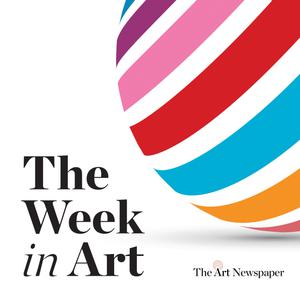 The Week in Art
The Week in Art
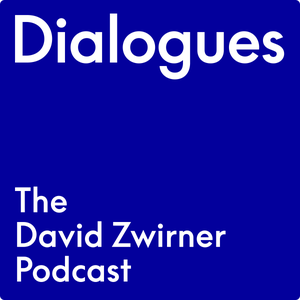 Dialogues: The David Zwirner Podcast
Dialogues: The David Zwirner Podcast
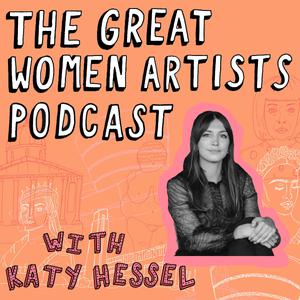 The Great Women Artists
The Great Women Artists
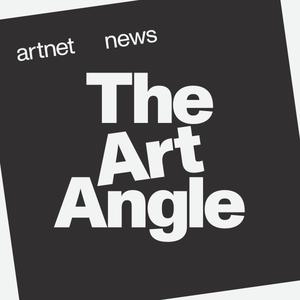 The Art Angle
The Art Angle
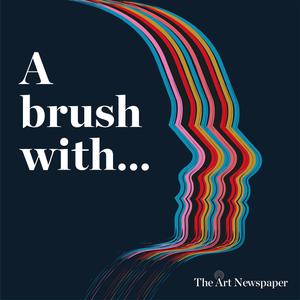 A brush with...
A brush with...
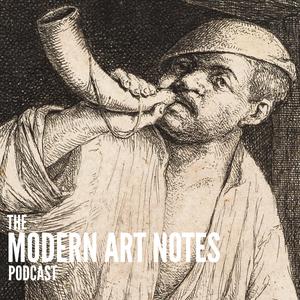 The Modern Art Notes Podcast
The Modern Art Notes Podcast